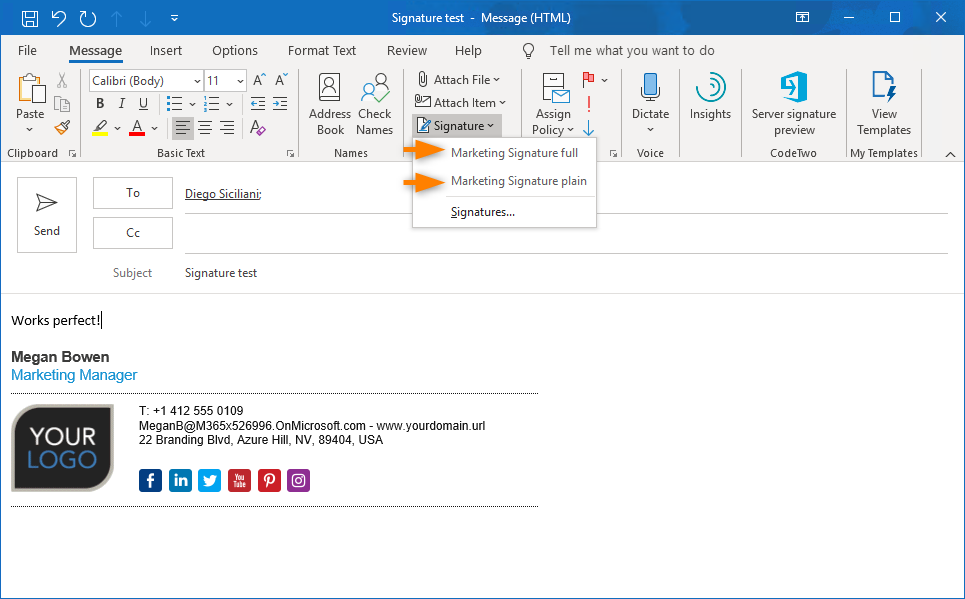
HOW TO ADD SIGNATURE IN OUTLOOK EXCHANGE HOW TO
Read on to see how to access the email signature settings and add or edit your Outlook on the web signature.

Outlook on the web looks a bit differently from its Microsoft 365 counterpart. Set up an email signature in Outlook on the web in Exchange 2016 or 2019 Just click the New signature button after you have saved your first signature to create another one. Unlike the on-prem version, it is possible to create and use multiple signatures for a single mailbox – similarly to the Outlook desktop client. The signature settings should be applied right away. After you finish setting up the signature, hit Save.
HOW TO ADD SIGNATURE IN OUTLOOK EXCHANGE GENERATOR
Instead of creating your signature from scratch, you can use the free email signature generator to quickly create a well-formatted email signature and paste it into the Outlook on the web’s signature editor.

The Settings window should also be accessible using this link. If you leave both drop-down menus with their default values (No signature), you will have to add the signature manually when composing an email. Here, you can create or edit your email signature, and choose whether it should appear automatically in your new messages and replies/forwards respectively. Then, click View all Outlook settings at the bottom of the pop-up window:

One of them is the path to the email signature editor. Even though both clients are similar when it comes to setting up signatures, there are some noticeable differences. What’s interesting is that despite the same name used for both on-premises (Exchange 2016 and Exchange 2019) and cloud environments, those Outlook versions are a bit different. Since then, Outlook on the web went through some visual upgrades, but there wasn’t another name change (yet). It’s been updated to reflect the current steps required to set up an email signature on respective platforms.īack in the day, when Exchange 2016 was released, OWA was replaced with a brand new and shiny Outlook on the web, known from Office 365 (or Microsoft 365, as the name also changed in the meantime). : This article was first published on March 15, 2016.


 0 kommentar(er)
0 kommentar(er)
